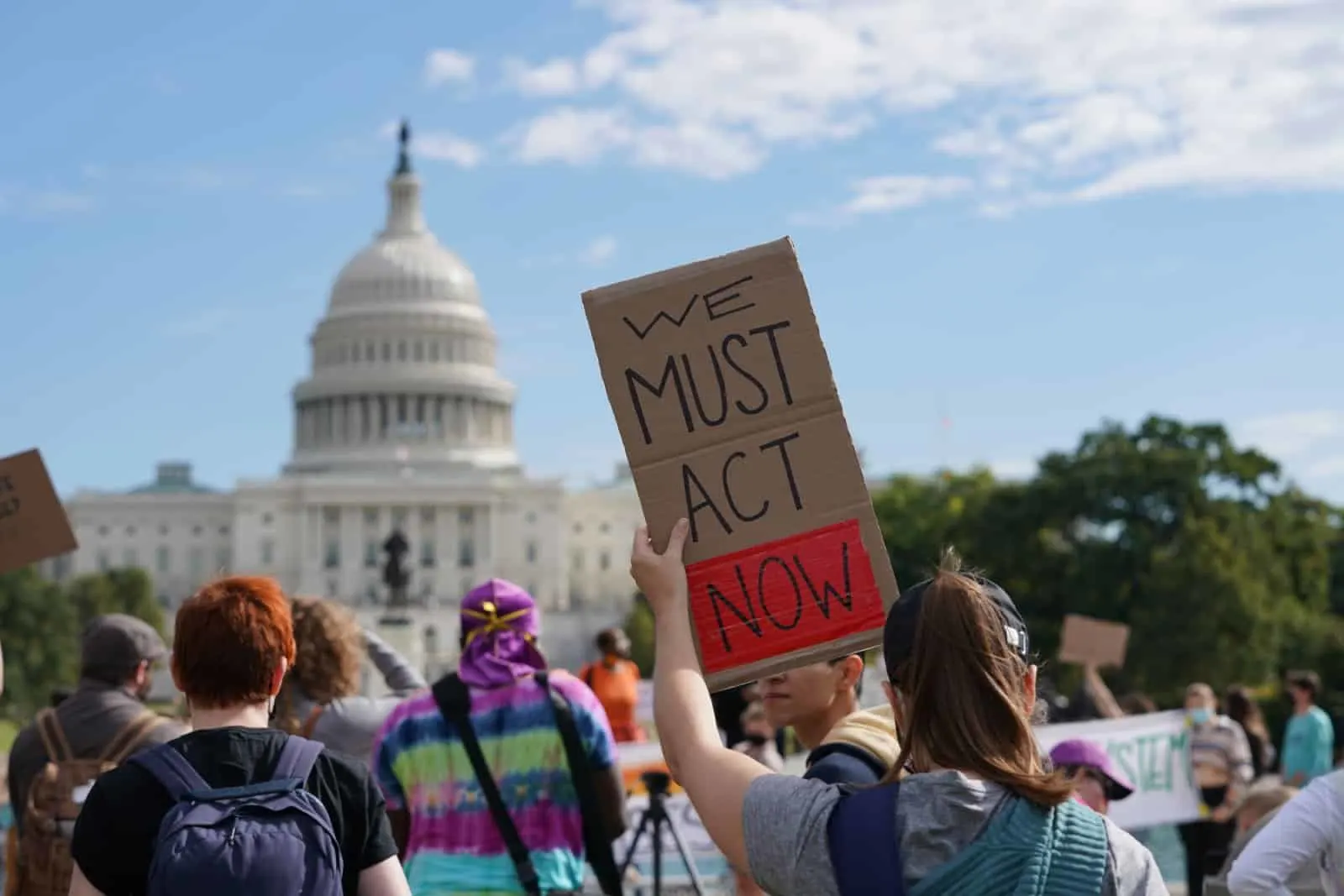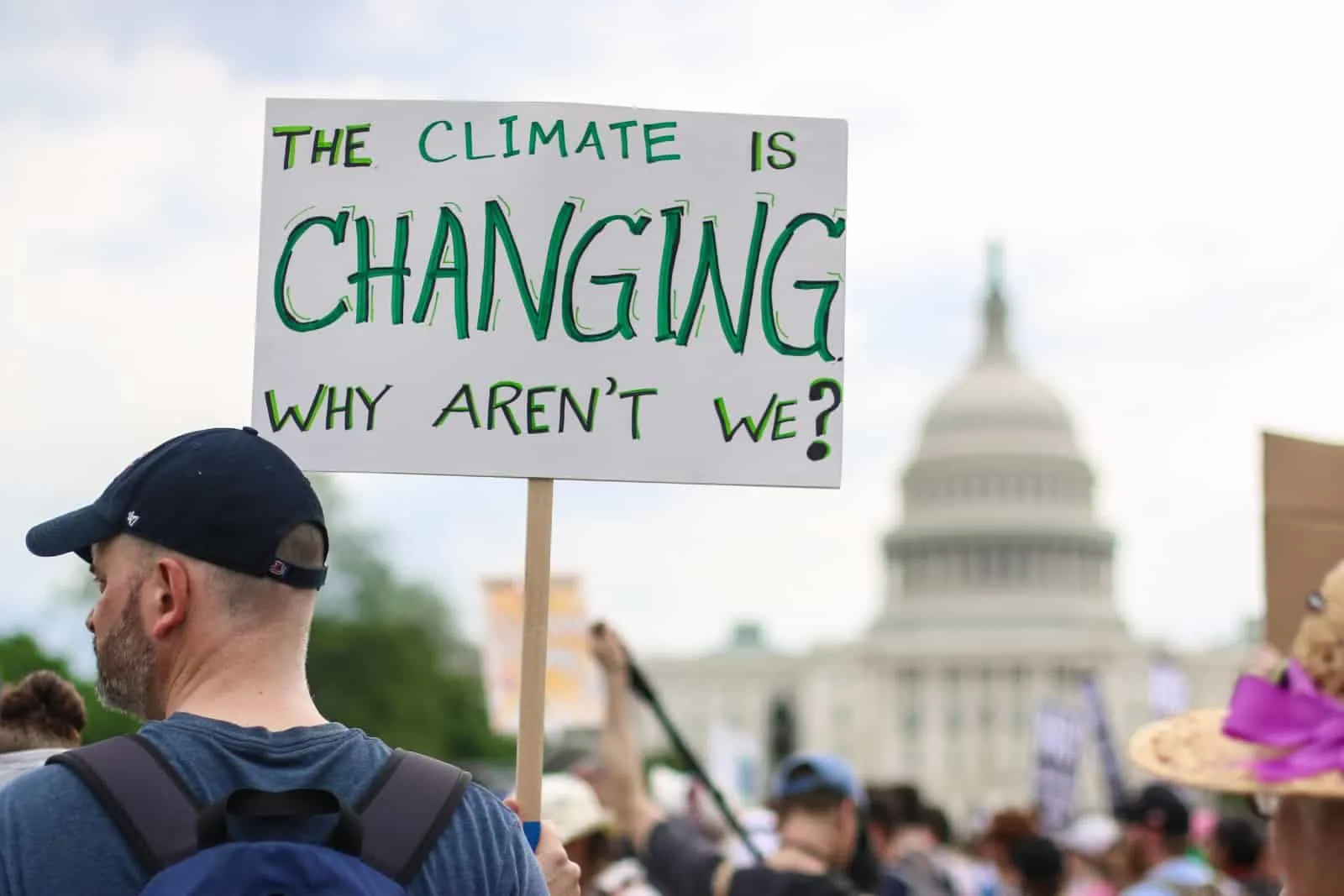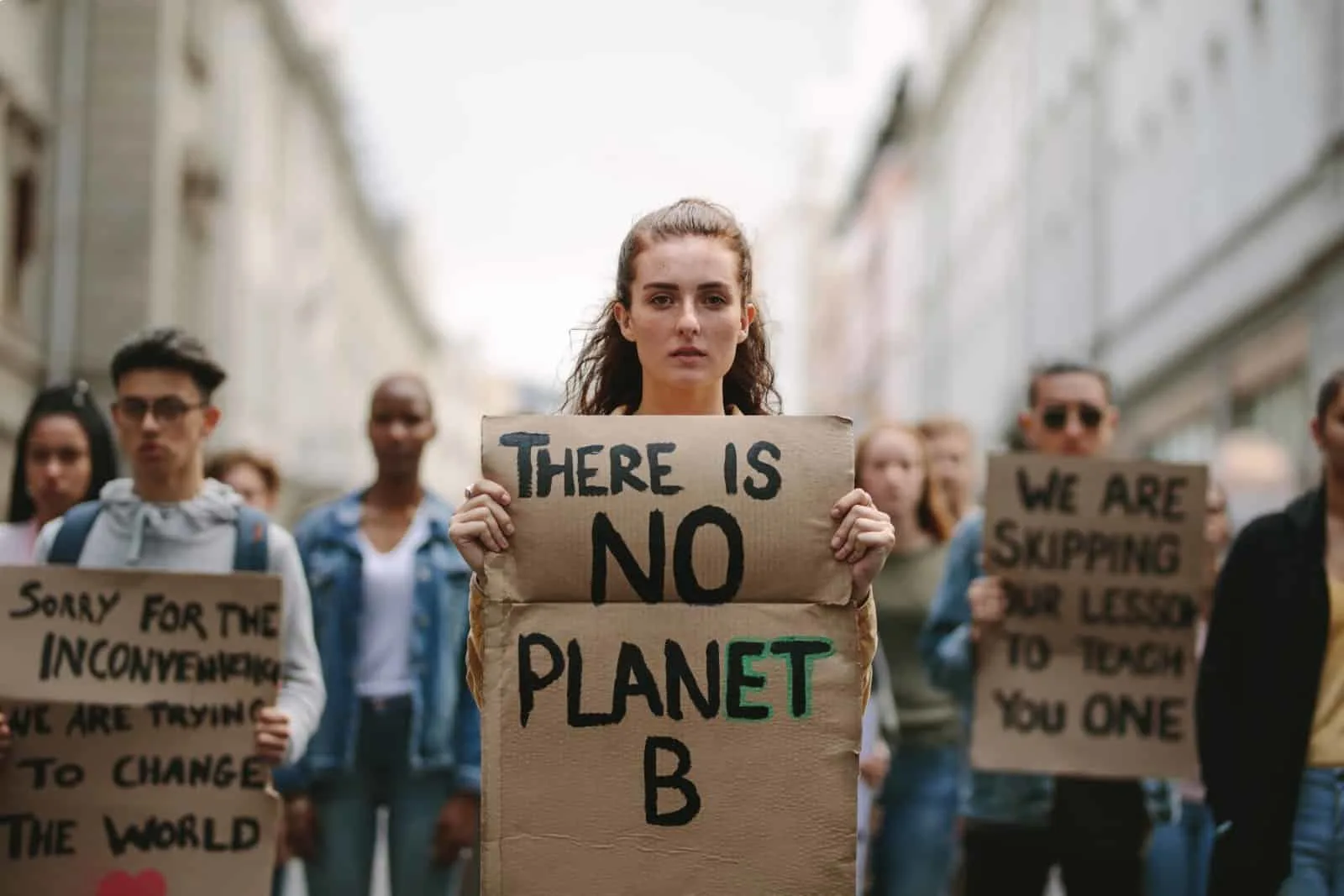Climate protests have become a global phenomenon, sparking conversations about environmental policies and the urgent need for action against climate change. While these protests aim to draw attention to crucial issues, some strategies have sparked debate over their effectiveness and impact on public support.
1. Disrupting Daily Lives

Image Credit: Shutterstock / PeopleImages.com – Yuri A
Protests that heavily disrupt daily routines can alienate those who might otherwise be supportive, diminishing public sympathy for the cause.
2. Negative Media Coverage

Image Credit: Shutterstock / stockphoto mania
Sensational tactics can lead to negative media portrayals, which might detract from the movement’s core message and goals.
3. Lack of Clear Demands

Image Credit: Shutterstock / Goksi
Without articulating specific, achievable demands, movements risk being dismissed as lacking direction, making it harder for policymakers to engage.
4. Focusing Solely on Criticism

Image Credit: Shutterstock / PeopleImages.com – Yuri A
While it’s important to highlight issues, failing to propose viable solutions or alternatives can limit a movement’s constructive impact.
5. Alienating Potential Allies

Image Credit: Shutterstock / sirtravelalot
Some tactics might alienate businesses, governments, and individuals who could play a key role in driving environmental change.
6. Overlooking Local Contexts

Image Credit: Shutterstock / Lomb
Global movements must adapt their message to local contexts and challenges, or risk their message being lost in translation.
7. Underestimating the Power of Dialogue

Image Credit: Shutterstock / Salivanchuk Semen
Prioritizing protest over dialogue can sometimes close off avenues for negotiation and collaboration with key stakeholders.
8. Risk of Echo Chambers

Image Credit: Shutterstock / Drazen Zigic
Focusing communication within tightly knit communities can limit outreach and engagement with a broader audience.
9. Neglecting Incremental Change

Image Credit: Shutterstock / Phil Pasquini
Dismissing smaller, incremental changes in favor of radical transformation can undermine progress that is achievable in the short term.
10. Overreliance on Social Media

Image Credit: Shutterstock / Tero Vesalainen
While powerful for spreading messages quickly, social media activism alone cannot substitute for on-the-ground organizational work and policy engagement.
11. Simplifying Complex Issues

Image Credit: Shutterstock / wellphoto
Oversimplification of complex environmental issues can lead to misunderstandings and detract from effective advocacy.
12. Ignoring Diverse Voices

Image Credit: Shutterstock / VAKS-Stock Agency
Failing to include a wide range of perspectives, especially from marginalized communities, can limit the movement’s inclusivity and relevance.
13. Blaming Without Offering Solutions

Image Credit: Shutterstock / 4-life-2-b
Constantly blaming certain sectors or groups without engaging them in finding solutions can perpetuate division and resistance.
14. Underestimating Educational Efforts

Image Credit: Shutterstock / Drazen Zigic
Not investing enough in educational initiatives can miss opportunities to inform and empower future generations about climate action.
15. Neglecting Self-Care

Image Credit: Shutterstock / Nicole Glass Photography
Activist burnout is real; neglecting the well-being of protesters can diminish the movement’s long-term viability and effectiveness.
The Bottom Line

Image Credit: Shutterstock / Jacob Lund
In conclusion, while climate protests play a vital role in highlighting the urgency of the climate crisis, the effectiveness of these actions can be significantly enhanced through strategic planning, inclusive dialogue, and constructive engagement.
By refining their approaches, climate activists can build broader coalitions and drive meaningful change more effectively, ensuring that the momentum for environmental action continues to grow.
More From The Green Voyage
Top 10 Trending Travel Destinations 2024
6 Essential Banking Apps for International Travel – Managing Your Finances on the Go
Traveling With Kids – 10 Tips to Create Memorable Family Holidays
The post 15 Strategic Shifts Climate Protesters Should Consider: A Guide for Eco-Savvy American Travelers first appeared on The Green Voyage.
Featured Image Credit: Shutterstock / Master1305.
For transparency, this content was partly developed with AI assistance and carefully curated by an experienced editor to be informative and ensure accuracy.
Tips for Trip Success
Book Your Flight
Find an inexpensive flight by using Kayak, a favorite of ours because it regularly returns less expensive flight options from a variety of airlines.
Book Your Hotel or Special Accommodation
We are big fans of Booking.com. We like their review system and photos. If we want to see more reviews and additional booking options, we go to Expedia.
You Need Travel Insurance!
Good travel insurance means having total peace of mind. Travel insurance protects you when your medical insurance often will not and better than what you get from your credit card. It will provide comprehensive coverage should you need medical treatment or return to the United States, compensation for trip interruption, baggage loss, and other situations.Find the Perfect Insurance Plan for Your Trip
